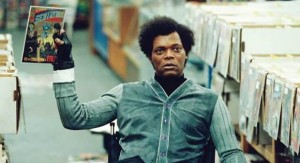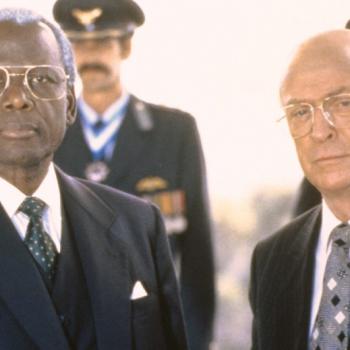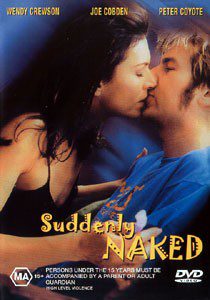 Unbreakable has a lot in common with The Sixth Sense, the surprise spook-story hit that nudged its way into the ranks of the top ten box-office hits of all time early this year. It is written and directed by M. Night Shyamalan. It stars Bruce Willis. And it is a solemn tale about a person who has supernatural powers and must find a way to come to terms with his gift, and use it responsibly.
Unbreakable has a lot in common with The Sixth Sense, the surprise spook-story hit that nudged its way into the ranks of the top ten box-office hits of all time early this year. It is written and directed by M. Night Shyamalan. It stars Bruce Willis. And it is a solemn tale about a person who has supernatural powers and must find a way to come to terms with his gift, and use it responsibly.
Willis plays David Dunne, a security guard who survives a train wreck without getting so much as a scratch, while all the other passengers die. David is soon contacted by Elijah Price (Samuel L. Jackson), a comic-book zealot who has been keeping an eye out for just such an incident, hoping to find an invulnerable man. Elijah has extremely fragile bones — the kids back in school used to call him “Glass” because he shattered so easily — and he’s been waiting his whole life to meet someone at the opposite end of the vulnerability spectrum.
Reluctantly, David begins to jog his memory and explore his abilities. There is no record of him ever being sick or injured. (However, he can, apparently, trim his fingernails and shave his head.) He discovers he can bench-press several hundred pounds. And he learns he has the ability to visualize people’s evil deeds simply by touching them. Finally, one day he decides to use his power to do some good, so he ventures out into the world, hiding his identity behind a hooded poncho which, when seen from behind, resembles a superhero’s cape.
That’s right, Unbreakable, for all its high-minded seriousness, is a superhero movie. But unlike films such as X-Men, which tap into teenage alienation and offer young audiences plenty of action and special effects, Unbreakable has been made with grown-ups in mind. David, ignored and unappreciated by his employers at the football stadium where he works, is plagued by dreams of what might have been; he had a promising football career himself until he and his girlfriend Megan (Robin Wright Penn) were caught in a car wreck together back in high school. Now, years later, they have a son and their marriage is on the rocks.
These sorts of relationship issues are central to Shyamalan’s films, and you have to admire him for even trying to make a film that starts with such a pulpy premise and then treats it like real drama. More often than not, and with the help of some solid performances, he keeps these two aspects of the film in balance — but on at least three occasions, he loses control of his material.
First, there is a scene in which David’s 12-year-old son Joseph (Spencer Treat Clark) brings a gun into the kitchen and threatens to shoot his father, to force him to accept his invulnerability. This is a highly drastic move on the boy’s part, but it passes with little consequence. Second, there is the scene in which David, out on his first night of vigilante justice, stops his first criminal. There is a realistic clumsiness in how he goes about this, but the music at that point strives for something more heroic and feels rather out of place.
Third, and most crucially, there is the ending, which, as you’ve probably heard by now, contains a plot twist that revises everything you thought you had seen up until that point. Shyamalan pulled this stunt before, of course, in The Sixth Sense, and he tips us off early on that he will do it again when Elijah’s mother gives him his first comic book and says, “They say it has a surprise ending.”
But while the gimmick brought a satisfying sense of closure to The Sixth Sense, here it just feels muddled. The last scene is further hampered by the use of and-then-he-did-this title cards, of the sort that normally appear at the end of true stories and comedies; no sooner has the film complicated things, than it tries to resolve them with a few sentences. It’s as though Shyamalan had a sequel or two in mind but, sensing something was amiss, abruptly called them off.
2.5 stars (out of 5)
— A version of this review was first published in The Vancouver Courier.
In a blog post dated July 20, 2006, I added: “The thing that strikes me about that review now is that I never refer to the one thing about the film that has lingered in my memory of it, namely Shyamalan’s use of long, uninterrupted takes. Plus, when referring to the twist ending, I do not use the metaphor that I have used in all my discussions of the film since then: it is as though Shyamalan were slamming on the gas and the brakes at the same time.”












